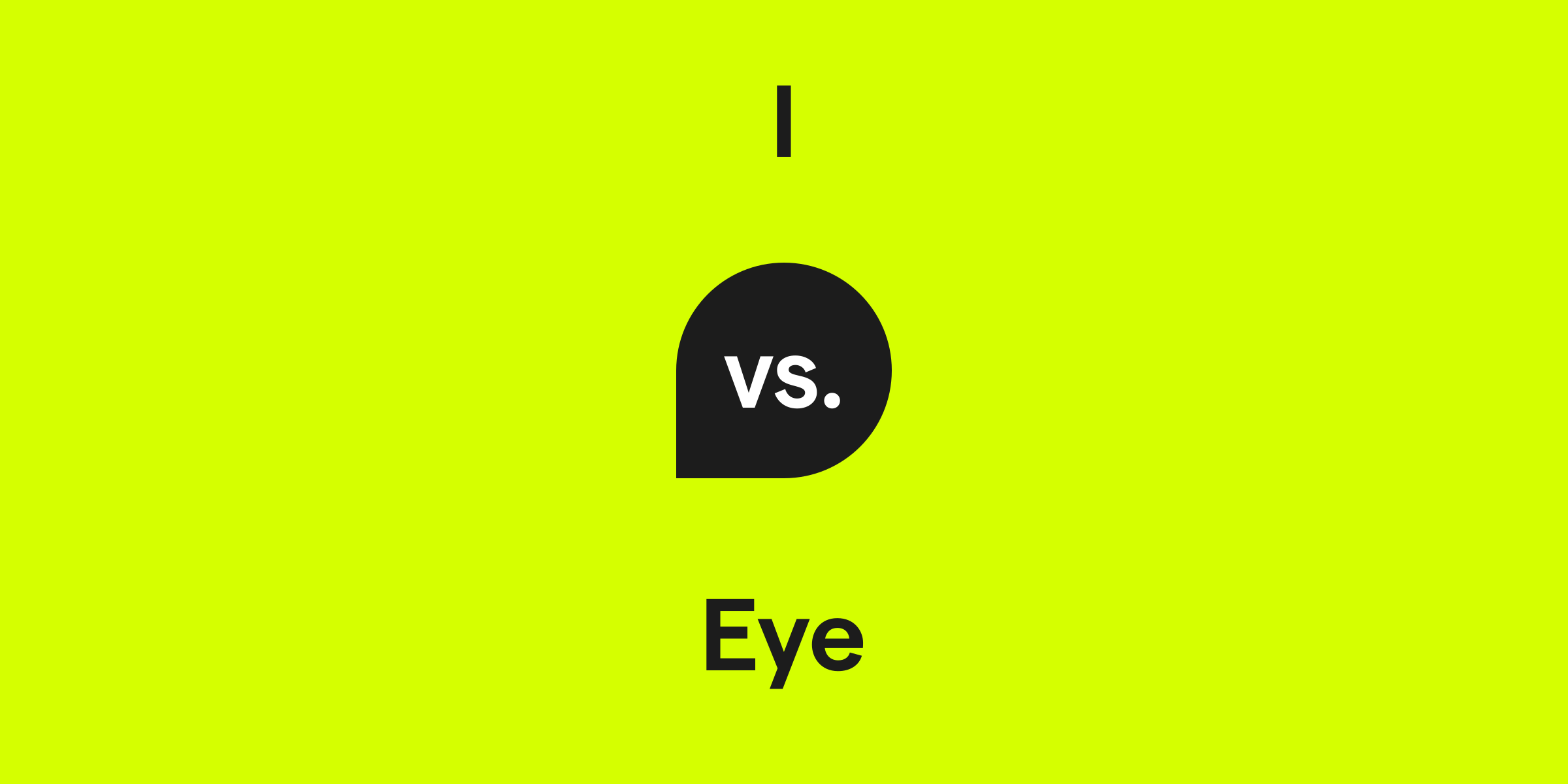I vs. Eye: What's the Difference?
When discussing I and eye, it's essential to recognize they are homophones: words pronounced similarly but differing in meaning or spelling. I is a pronoun used to refer to oneself, signifying the speaker or writer. Conversely, eye is a noun referring to the organ of vision found in humans and many animals. While they share the same pronunciation, their uses in language are distinct and non-interchangeable.

How do you use the "I" in a sentence?
The word I is used as a pronoun to refer to the person speaking or writing. It's the subject of a sentence that describes an action, thought, or perception carried out by the speaker. I is always capitalized in English, regardless of its position in a sentence, to denote the significance of the self.
Examples of i in a sentence
- I will attend the meeting tomorrow.
- I think we should take a different approach to this problem.
- Can I offer you some help with that?
How do you use the word eye in a sentence?
The word eye refers to the organ responsible for sight and is used as a noun in various contexts. It can describe the physical eye itself or metaphorically depict the act of seeing or observing. Additionally, it can be part of idiomatic expressions or phrases.
Examples of eye in a sentence
- He wore sunglasses to protect his eyes from the bright sun.
- The artist's eye for detail is astounding.
- Keep an eye on the stove while I answer the phone.
I and eye definition, parts of speech, and pronunciation
I definition:
I is a pronoun used by a speaker to refer to themselves. It is singular, subjective, and always capitalized in English.
I parts of speech:
I pronunciation:
I is pronounced as /aɪ/, rhyming with words like 'sky' and 'fly'.
Eye definition:
Eye is a noun that refers to the organ in humans and animals that detects light, enabling sight.
Eye parts of speech:
Eye pronunciation:
Eye is pronounced as /aɪ/, identically to the pronoun I.
I is a pronoun used by a speaker to refer to themselves. It is singular, subjective, and always capitalized in English.
I parts of speech:
- As a pronoun: I decided to go for a walk despite the rain.
I pronunciation:
I is pronounced as /aɪ/, rhyming with words like 'sky' and 'fly'.
Eye definition:
Eye is a noun that refers to the organ in humans and animals that detects light, enabling sight.
Eye parts of speech:
- As a noun: She has blue eyes.
Eye pronunciation:
Eye is pronounced as /aɪ/, identically to the pronoun I.
I vs. eye in a nutshell
While I and eye are homophones pronounced /aɪ/, they serve entirely different roles in English. I is a pronoun representing the individual speaking or writing and is consistently capitalized as a sign of self-identity. Eye, on the other hand, is a noun for the sensory organ that grants vision. Understanding the distinction is crucial for clear communication and correct usage in both written and spoken English.
Get AI Writing Assistance Wherever You Type
Make sure your vocabulary is on point and every punctuation mark is in the right place, no matter where you’re working. Grammarly works across more than 1 million websites and apps so you can improve your writing without copying, pasting, or breaking focus.

More Commonly Confused Words
Interest piqued? Pore (not pour) over other commonly confused words to help your writing reach peak (not peek) performance.